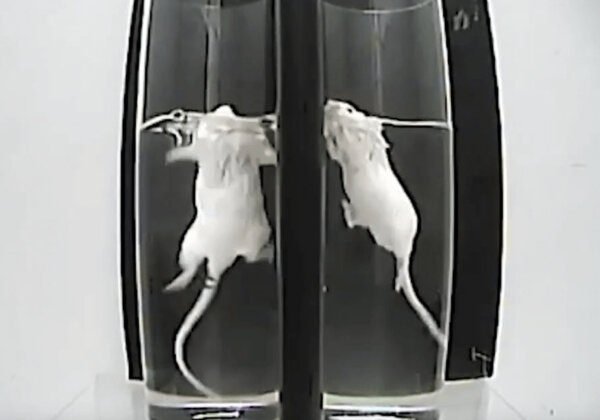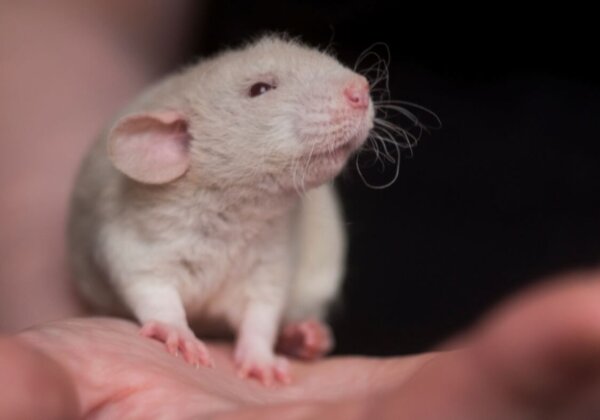Inside a Colombian Hellhole for Monkeys: Animals Left to Die of Wounds, Cages Full of Faeces
Animals living in their own filth. Mice who were left to resort to cannibalism. Years of apparently illegal experiments on monkeys. A PETA US investigation has unearthed shocking evidence of cruelty in a Colombian laboratory.

The facility is part of a “consortium” in the country owned by a husband-and-wife team, who founded one of their biomedical companies by installing themselves and their three children – who were all minors, the youngest only 12 years old at the time – as the sole members of its board of directors. According to Colombian regulators, the couple appear to have been using monkeys in experiments for a decade without the required permits and have never been licensed to breed them.

Evidence obtained from public records requests and the testimonies of 11 former employees, gathered as part of the PETA US investigation, show that monkeys who were captured in nature were used for experimentation and breeding at the facility, possibly illegally. The group also found horrific violations of animal welfare laws, questionable business practices, and allegedly shoddy science and manipulation of data at two of the couple’s companies, Caucaseco Scientific Research Center (Caucaseco) and the Malaria Vaccine and Drug Development Center (MVDC) in Cali, Colombia.
The pair have published papers with leading institutions around the world, including ones in Australia.

Colombian Hellhole Apparently Skirting Requirements for Experimenting on Monkeys
A 24 November 2021 inspection by a state environmental agency showed that the “primate centre” in which the monkeys were confined was in fact nothing more than a makeshift enclosure consisting of a chain-link fence topped with construction mesh and covered with plastic sheets.

There were no windows. No airflow. The cages were caked with faeces and fungus. The inspector found that the monkeys were fed dog kibble soaked in sugary water, and there were no records of their diet being adjusted based on their individual needs or age. The monkeys were given a human mineral supplement weekly, according to the inspection report PETA US obtained.
There was no veterinarian on staff and no medical records were kept, even though some monkeys were suffering from hair loss and exhibited abnormal body posture.
There was only one room to perform autopsies and medical procedures, such as suturing and cleaning monkeys’ wounds – a room that was likely barely used, since, according to former employees, monkeys were often left to die from their infected wounds. Just three autopsy reports were available to the inspector, and not one of them was signed by a veterinarian. Although the reports said that organs and tissues had been sent for pathological analysis, an employee alleged that this didn’t happen, because “there are no resources to do this type of analysis”.

Witnesses Say …
Former employees paint a morbid picture of the conditions for the monkeys, alleging, among other atrocities, that the animals were often exposed to the elements because the construction mesh shifted in bad weather. Eyewitnesses said that the monkeys were not properly protected and that local cats wandered freely around the enclosures, putting the monkeys at risk of diseases such as toxoplasmosis.
The rusted monkey cages were never cleaned, witnesses said. Employees only rinsed the trays with water to remove faeces. The area smelled strongly of urine and excrement. Rats, snakes, and cockroaches and other insects were often seen near the enclosures, and tall weeds surrounded it.

Former employees report that no records were kept for any of the monkeys. Only some of the animals were microchipped, and their chips contained only a number that indicated the animal’s sex.
Witnesses said there was no way of knowing whether the monkeys had been used in experiments – a basic piece of information.
Mice Left to Resort to Cannibalism
The facility also kept mice, and former employees allege that because males and females weren’t separated, the mouse population exploded to 700 animals between the summer and autumn of 2021. As a result, up to 30 mice were crammed into boxes designed for a maximum of five. The mice didn’t have enough water and, according to witnesses, some resorted to cannibalism.

Allegedly, the owners ordered that more than half the mice be killed. According to statements obtained by PETA US, without appropriate euthanasia protocols, employees were asked to place the mice in a fish tank with cotton balls soaked in chloroform until they became sleepy. Then, according to former employees, they killed the mice by pulling their heads and tails at the same time, snapping their spinal cords.
Possible Illegal Capture of Monkeys
The owners’ record of getting the proper authorisation to trap monkeys is spotty and points to the possibility that they are illegally abducting monkeys from their homes in the Colombian forests. According to one former employee, “When they said that there had been a birth in captivity, it was a lie. It wasn’t that a baby had been born – it was that a baby had been captured.”

What You Can Do
This hellhole is just another example of how cruel and murky the animal experimentation industry is. Please take action against all tests on animals by signing our petition to support the Research Modernisation Deal:







